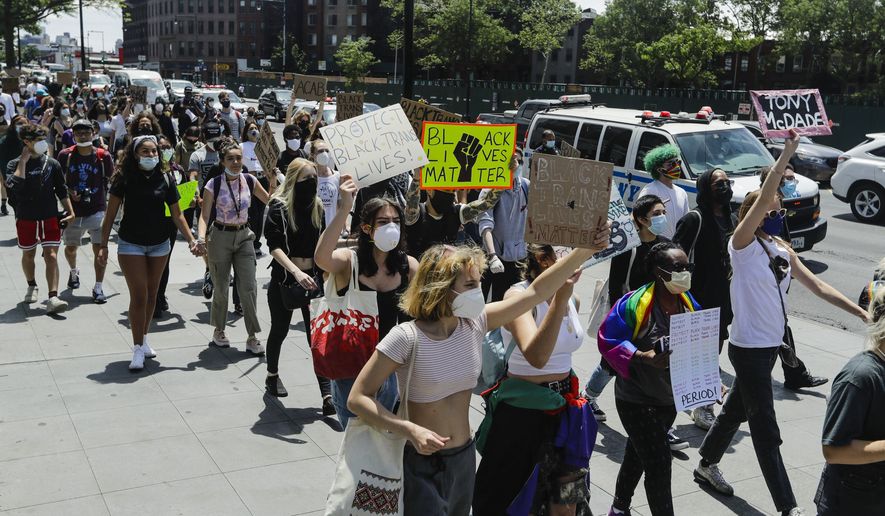New York Gov. Andrew Cuomo can’t on the one hand praised Black Lives Matter protesters for defying his coronavirus orders, and at the same time get angry at churches that want to open, a federal judge ruled Friday.
Judge Gary L. Sharpe, a Bush appointee, said Mr. Cuomo and New York City Mayor Bill de Blasio undercut their own case for limiting religious gatherings to 25% of regular capacity by allowing restaurants to open at 50% capacity.
And the judge said the two men’s own praise for protests, while discouraging in-person religious worship, showed illegal preferential treatment for one set of First Amendment rights over another.
“Governor Cuomo and Mayor de Blasio could have just as easily discouraged protests, short of condemning their message, in the name of public health and exercised discretion to suspend enforcement for public safety reasons instead of encouraging what they knew was a flagrant disregard of the outdoor limits and social distancing rules. They could have also been silent. But by acting as they did, Governor Cuomo and Mayor de Blasio sent a clear message that mass protests are deserving of preferential treatment,” he wrote.
New York City had argued that it was a matter of public safety not to discourage the protests. But Judge Sharpe said the governor and mayor didn’t just not discourage the protest, but actively encouraged them — while at the same time discouraging churches and synagogues.
Mr. de Blasio in particular took to Twitter in April to blast a Jewish funeral gathering, saying he went personally to make sure the crowd was dispersed. He said he’d ordered police to arrest “those who gather in large groups.”
Yet Mr. de Blasio himself — sans mask — attended such a large gathering, a demonstration in memory of George Floyd, whose death last month sparked the BLM protests.
“Neither the 10-person limit on outdoor gatherings, nor the social distancing protocols, were adhered to,” the judge noted.
The ruling is the latest entry in what’s quickly become a convoluted legal scene when it comes to coronavirus restrictions and religious liberty.
The Supreme Court earlier this month refused to block a California rule, with Chief Justice John G. Roberts Jr. saying judges generally should avoid second-guessing governors amid the pandemic, and saying as long as religious gatherings are treated the same as similar activities, there’s no violation of First Amendment liberties.
In New York’s case, though, Judge Sharpe said religious gatherings are the only ones subject to a 25% capacity rule. Nonessential businesses are allowed to operate at 50% capacity, despite some of them being “not justifiably different than houses of worship.”
He said those establishments, such as salons and indoor dining at restaurants, represent risks of coronavirus spread yet Mr. Cuomo and Mr. de Blasio are allowing their increased activity.
The disparate treatment between BLM protesters exercising their First Amendment rights and religious communities wanting to exercise their First Amendment rights has drawn criticism from the highest levels of Washington.
On Friday, the Justice Department praised Judge Sharpe’s ruling.
“Government cannot discriminate by protecting free speech and the right to assemble while threatening or limiting religious exercise — it must protect all rights guaranteed under the First Amendment,” said Assistant Attorney General Eric Dreiband.
• Stephen Dinan can be reached at sdinan@washingtontimes.com.




Please read our comment policy before commenting.